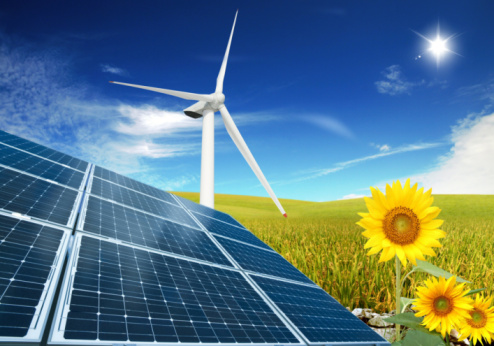Banking, finance, and taxes
Shrinking Prospects for Nuclear Power Plants
Published:
Last Updated:

Goldman established the Japan Renewable Company in August of last year and the bank’s energy projects look to add about 1,000 megawatts to Japanese renewable generation. The country currently generates about 6,100 megawatts of its total supply of around 285,000 megawatts from renewable sources. By the end of this year, that total is expected to grow to 9,400 megawatts. Clearly, there’s a lot of room to grow the renewable share.
After France and the U.S., Japan was the largest consumer of nuclear power generation in the world. And while both the U.S. and France remain committed to keeping nuclear generation in the mix, the defections of Germany and Japan and the shutdown of several plants in the U.S. due to age continues to squeeze demand for new nukes.
The U.S. Department of Energy recently committed $150 million to a subsidiary of engineering firm The Babcock & Wilcox Co. (NYSE: BWC), mPower, that is working on a design for a small module reactor (SMR) that is projected to cost about $5,000 per kilowatt of generation. A 200-megawatt version would cost about $1 billion, far below the double-digit billions of a full-scale 1,000-megawatt plant.
Whether the SMRs will be viable and acceptable remains to be seen, but as old reactors are shut down in the U.S. and new coal-fired plants are highly unlikely to be built, natural gas-fired plants and renewables like solar and wind are set for more growth, provided financing does not become a major obstacle.
Goldman’s bet in Japan is not a very large risk. The big risk these days is betting on nukes.
Credit card companies are pulling out all the stops, with the issuers are offering insane travel rewards and perks.
We’re talking huge sign-up bonuses, points on every purchase, and benefits like lounge access, travel credits, and free hotel nights. For travelers, these rewards can add up to thousands of dollars in flights, upgrades, and luxury experiences every year.
It’s like getting paid to travel — and it’s available to qualified borrowers who know where to look.
We’ve rounded up some of the best travel credit cards on the market. Click here to see the list. Don’t miss these offers — they won’t be this good forever.
Thank you for reading! Have some feedback for us?
Contact the 24/7 Wall St. editorial team.